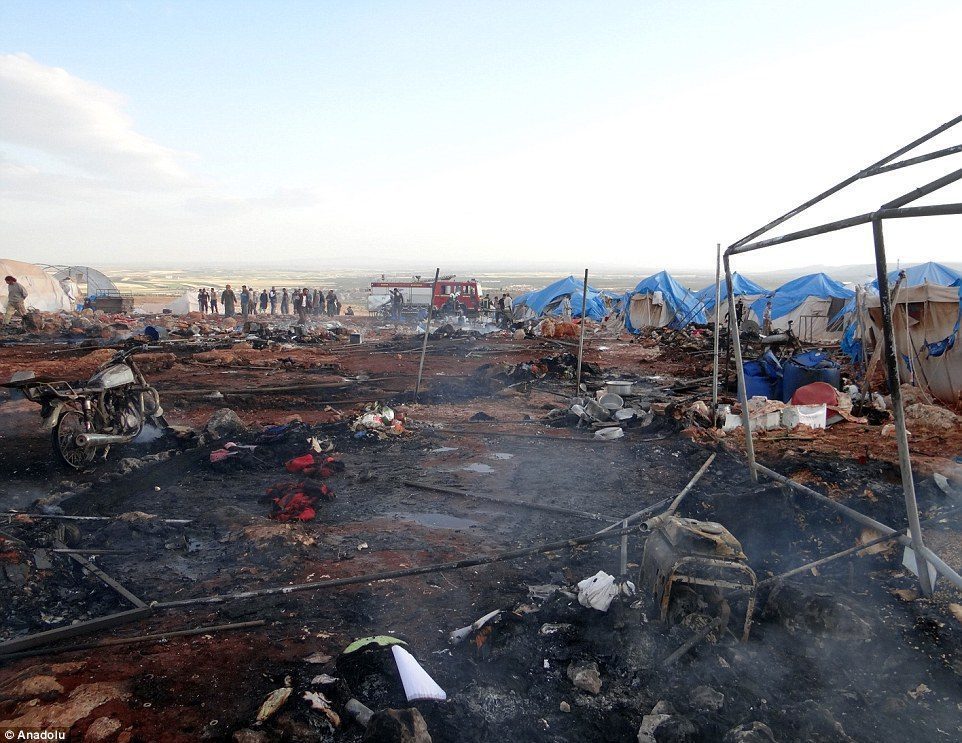
Inconsistent statements from the U.S. on retriving the weapons it is providing the YPG after operations end shows that the Obama administration’s policies still dominate Washington, which could further strain U.S.-Turkish ties
U.S. Defense Secretary Jim Mattis said Tuesday that the U.S. will continue to provide weapons to the PKK’s Syrian offshoot the armed People’s Protection Units (YPG) after concluding the battle against Daesh in northern Syria’s Raqqa province. Experts defined this statement as “inconsistent” and emphasized the rhetoric could result in a crisis between Turkey and the U.S. as it is impossible for the U.S. to ally itself with both Turkey and the YPG in northern Syria. According to Can Acun, a political analyst at the Foundation for Political, Economic and Social Research (SETA), the latest statements from the U.S. clearly show that Washington will continue to assist its “friends” in Raqqa.
“However,” he said, “The continuation of this friendship is a threat to Turkey’s security as it will lead to cooperation between the PKK terrorist organization and the U.S. in northern Syria. Ultimately, Turkey would intervene in such a situation and it is now only a matter of time until that happens.” Describing American reassurances to Turkey that the U.S. will take back weapons it has given to the YPG after the Daesh fight, Mattis said a timeline on that return depends on when and where the next mission is.
He also gave a note of caution when asked if all the weapons will be returned.
“We’ll do what we can,” the defense secretary told reporters traveling with him to Germany.
Mete Yarar, a security expert who is also a former member of the Turkish Armed Forces (TSK) said: “When we consider previous statements made regarding Syria and Iraq, especially during the times of the Obama administration, we see similar inconsistent statements which are not surprising to us anymore.” Yarar went on to say, in his opinion, one of the main reasons behind the inconsistency of these statements is the fact that the Obama administration continues to work with the Trump administration, which is following the same policies and strategies of the previous term.
Acun, on the other hand, said that efforts to retrieve the weapons mentioned in the letter sent to Fikri Işık last week aim to propitiate Turkey rather than make any promise to the country. “The purpose of the letter was to thwart Turkey’s doubtfulness regarding activities in northern Syria,” he said, adding that the statement on the retrieval of the weapons from the YPG was “not directed at the public.”
Meanwhile, President Recep Tayyip Erdoğan criticized Sunday the U.S.-led coalition’s support to the Syrian Democratic Forces (SDF), which is dominated by the YPG, saying that these moves contradict the NATO alliance.
Speaking at a meeting in celebration of Eid al-Fitr held by the ruling Justice and Development Party (AK Party) in Ankara, President Erdoğan said: “On one hand, we will be together within NATO but on the other, we will act alongside terrorist organizations. If this is the case, then NATO needs to be reassessed. All of these moves go against the NATO alliance.”
“I pointed this out at the last meeting in Brussels. We will respond to every terror attack waged against Turkey from Syria and Iraq and from our soil as well,” Erdoğan said.
The president also questioned the sincerity of assurances from the U.S. that its support of the YPG will come to an end once Daesh is defeated in Iraq and Syria. “As a result of Operation Euphrates Shield, we had disrupted efforts to establish a terror corridor along our [Turkish] border with Syria. Unfortunately, countries that we call allies and had referred to as friends, do not see any problem in cooperating with terror groups that have their eyes on disrupting Turkey’s territorial integrity. Those who think that they can deceive Turkey by making promises to ‘take back weapons given to the terror group’ are making a major mistake and the damage has been done,” Erdoğan said, referring to the assurances of Mattis in a letter to his Turkish counterpart Fikri Işık.
“These statements should not be evaluated outside of the context of the most recent events; namely, the downing of an Assad regime jet by the U.S. and Iran’s ensuing reactions to it,” Yarar said, indicating that when considering all of these events together, it can be seen that this statement is not something that aims to confront Turkey but rather is a reaction to the expansion of the Assad regime and Iran. “I don’t think they would consider severing ties with Turkey,” he added.
Turkey considers the PKK’s Syrian offshoot the Democratic Union Party (PYD) and the YPG to be affiliates of the PKK, a proscribed terrorist organization according to the U.S., Turkey and the EU. The U.S. and the EU do not share Ankara’s concerns regarding the YPG. Continuous U.S. support for the YPG has caused tensions in relations between Washington and Ankara while the former says that supporting the YPG is the only option to defeat Daesh and the latter says an alternative could be found with local Arab tribes, backed by countries in the region, rather than supporting and arming “a terrorist group.”



